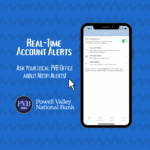The Federal Trade Commission recently released new data about fake check scams. Here’s what we learned:
Fake Check Scam Facts
- Complaints about fake check scams increased 65% since 2015.
- In 2019, over 27,000 fake check scams were reported resulting in over $28 million in losses.
- Individual median losses were $1,988.
- People in their 20’s were over twice as likely than people 30 and older to report losing money to fake check scams.
- College students report scams that start with an email made to look like it’s from the school’s career services office sent to their student email address.
According to the FTC, these scams have two telltale elements – “a check to deposit and a plausible explanation for why you can’t keep all the money”. Fake checks can come as personal or business checks, cashier’s checks, money orders, or electronically delivered checks. The main plot of the scam involves someone sending a check and requesting the recipient to wire some of the money back to the sender. After the victim has wired the money, they find that the check cannot be deposited. Reasons for wiring some of the money back vary. Two common story lines go as follows:
- After applying for a job and being hired over the internet, you’re sent a check and asked to use some of the money to buy gift cards for your new boss.
- After someone has bought something from you online, they “accidentally” send a check for too much and request a refund for the balance.
The most common fake check story plots fall under the following categories:
- 51% – Job & Income Opportunities
- 18% – Online Selling
- 4% – Winnings & Grants
- 2% – Loans
Tips to Avoid Fake Check Scams
- If someone sends you a check and asks you to wire them money back or send them gift cards in return, it’s probably a scam.
- If you don’t know the person who sent the check, never send money back to them.
- If you are selling online, do not accept checks for more than the price of the sell.
- If you believe you may have provided financial information to a scammer, contact your bank immediately.
- If you spot a scam, report it to the FTC.





